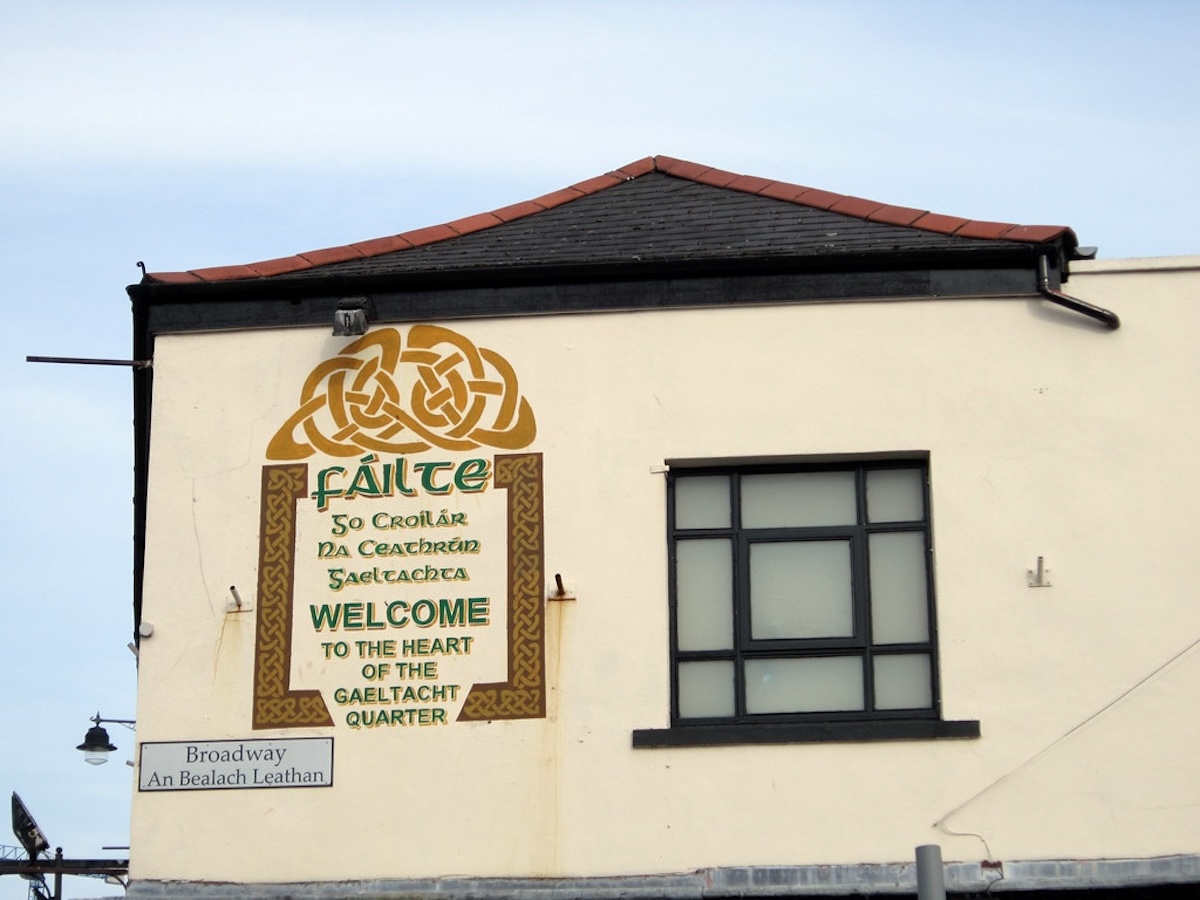
Plans for bilingual street signs in west Belfast’s Gaeltacht Quarter are to go ahead following ratification of an agreement by a Belfast City Council committee.
The proposals will allow for a ‘fast-track’ arrangement compared to the rest of Belfast, where residents must still take on a rigorous application process for a dual-language street sign.
There are 700 streets across the city with outstanding applications for dual-language street signs. The Gaeltacht Quarter has 417 streets, 108 of which already have bilingual signs.
The plan should lead to signs being installed all at once in a cost-saving measure.
Unionists have opposed the plan for the area, which was drawn up by consultants in 2010.
DUP councillor Ian McLaughlin said he did not wish to see the Irish language appearing at interface areas, which he said could be “divisive”.
He described the area within the boundary as “basically republican west Belfast” and feared it could expand further as other areas sought to allow Irish signs.
Ciarán Mac Giolla Bhéin, of Irish language group Fís an Phobail, said he welcomed the adoption of a “progressive signage policy”.
“This will compliment the dynamic, community-led revival in the area, reinforce positive attitudes in relation to the language and demonstrate that this area has a vibrant bilingual community,” he said.
“It will also help clear the backlog in signage requests and allow council to meet demand across the city for bilingual street signage.”
Cuisle Nic Liam, of campaign group Conradh na Gaeilge, said the new signage would lead to “normalisation” of the Irish language and increased tolerance of bilingualism.
“Considering over 90% of our placenames come directly from Irish, this is a linguistic restorative policy that will see Irish returning to areas and streets where it was previously banned,” she said.
Ms Nic Liam said the policy was put forward to address the “dire waiting times and backlog, with residents potentially waiting up to 10 to 12 years in the queue”.
“We estimate this will save the council around £185,000 rather than doing this on a street by street basis, whilst clearing the backlog of applications and speeding up the overall process at the same time.”
![[Irish Republican News]](https://republican-news.org/graphics/title_gifs/rn.gif)
![[Irish Republican News]](https://republican-news.org/graphics/title_gifs/harp.gif)

